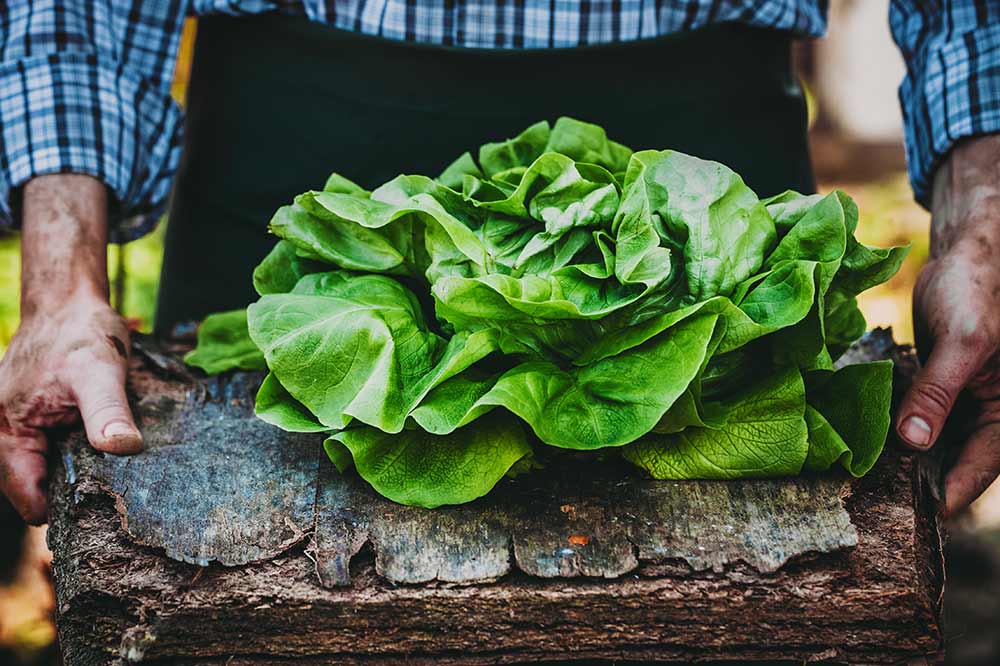For many restaurants, connecting with independent farms in their community can lead to a wide variety of benefits for all involved. When done right, these partnerships can grow both businesses and bring added appeal to your guests. While the initial introductions and legwork may take some effort, it’s worth the time to consider your options when it comes to farm/restaurant cooperation.
Farm-to-table restaurants continue to be very appealing to restaurant goers, particularly millennials, who see both the environmental issues and the consumer ethics behind today’s agricultural operations. It’s difficult for small farms to thrive, even when they’re producing wonderful crops, because there’s always the risk of being squeezed out by big manufacturing companies. By teaming up with local farmers, you’re contributing in small part to putting money back into your community and local economy.
And directly teaming up with restaurants gives many locally-owned farms financial stability — and may even give them the means to expand their business. Many guests look for restaurants who advertise their use of small, locally-owned suppliers over the big corporate suppliers.
Many diners want to feel like they’re supporting businesses with the priorities in mind that mirror their own. Partnering with farms can help your restaurant build its reputation as an ethically-minded business with dedicated to its community.
From your standpoint as a business owner or manager, there are a number of reasons why working with farmers might be appealing. Buying locally from area farms means getting fresher, in-season ingredients that represent your particular region.
Smaller farms are also more likely to have specialty regional items that larger suppliers just don’t sell (which means your competitors working with the large suppliers aren’t getting them, either). Your customers could be getting a unique experience, so be sure to remind your servers to share your dish’s provenance with your guests tableside.
The potential for more precise ordering is also huge if you’re willing to work with your farmer in advance. They can let you know what produce is growing well for them (and the length of that growing season) so you can adapt your menu to feature the best produce for any particular time.

Let your farmer know which ingredients you really want to highlight and advance order for them so the farmer can correctly pick at the right time for your order. By timing crop harvesting to with the restaurant menus, farms can be more prepared to provide any desired order. Likewise, restaurants are more prepared to be able to use that produce, minimizing food waste from poor planning and spoilage.
Networking with Farmers
So how can a restaurant manager or owner link up with farms in your area? Organizations like REAP Food Group and Farmers Web specifically connect agricultural industry and food industry businesses together to form cohesive partnerships. These organizations (along with various online forums) often work as middlemen between farms and restaurants, largely to get the conversation going and help different businesses simply get acquainted.
But you don’t have to go through an organization to make these connections with local farmers. For instance, consider checking out farmer’s markets in your community to start networking with growers in your area.
Tell them about your business, what your menu is like, and how you’re trying to bring in more farm-to-table methods into your brand. You can also ask your fellow restaurateurs in your area about their experiences collaborating with farms (and if they have any particular recommendations for farms to work with).
The important thing to remember is that networking and creating business relationships take time. It’s not about linking up with a farm as quickly as possible to take advantage of an in-the-moment trend. It’s about building professional relationships that can benefit everyone involved for years to come.
Once you’ve established your relationship with a local farm and its place within your menu, don’t forget to let people know! The surest way to a wasted opportunity is leaving marketing off the table. Incorporate farm-to-table dishes and descriptions of the ingredients you purchase into your overall brand and advertising. Your choice to team up with a local small farm makes you special — but only if the community knows about it!
Consider putting a page on your website about the farm and your dedication to both supporting local business and serving locally grown food. If a dish uses a specialty item from the farm, mention it on your menu as part of the dish description.
You can even brainstorm co-hosting events with your farmer, either on their land or in your restaurant. It’ll be great press for both of your businesses and a wonderful opportunity to show your community spirit.
Want more tips and tricks of how to move into summer and make a big profit?






